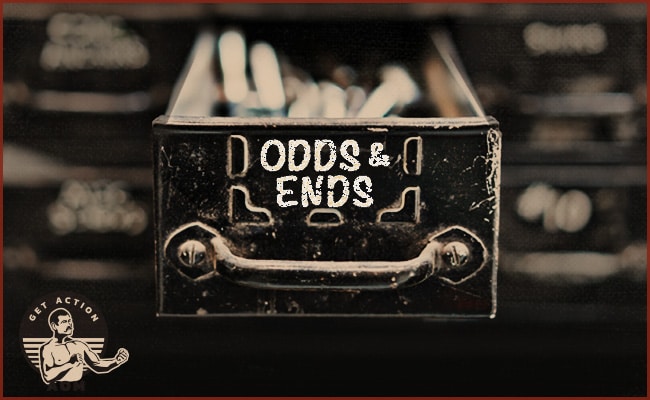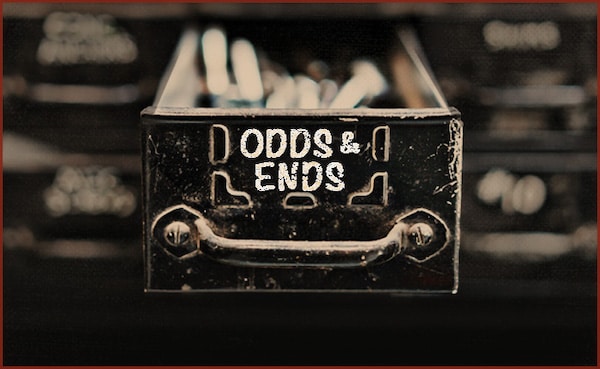
Pentax K1000 Film Camera. Our son Gus had expressed interest in getting a manual film camera, so we recently gifted him one for his 15th birthday, choosing the Pentax K1000. This classic tank-like camera was used by high school and college photography classes from the late ’70s through the ’90s. Built like a brick with minimal electronics to fail, it forces you to actually learn photography. There’s no auto anything. You set the aperture, shutter speed, and focus yourself. The only battery it needs is for the light meter. Gus got his first roll of film developed, and the results have been impressive. He snapped a quick picture of me that turned out legitimately cool. Looks like it was taken in the 1970s. The future is analog, friends.
“In Defence of Men” by Will Storr. We had Will Storr on the podcast several years back to discuss his book on social status. He recently published a piece on masculinity that cuts through the usual “what’s wrong with men?” discourse. His core argument is this: competence is central to male identity. Not power, not dominance. Just wanting to be good at something. He backs this up with research showing how manhood, unlike womanhood, has always been something that must be earned and proven through displays of skill. From tribal hunting tests to modern obsessions with smoking meats and building ships in bottles, men seek mastery. He makes the case that the increase in middle-aged suicide among men might be attributed to men feeling their competencies declining and their usefulness evaporating. He points to the Men’s Shed Movement in Australia as one solution that actually gets it right. They give men communal spaces to fix things and teach skills, acknowledging that men often connect better “shoulder to shoulder” while working on tasks rather than face-to-face over lunch.
Re-Arrange Us by Mates of State. Kate and I discovered Mates of State way back in the 00s, and their 2008 album, Re-Arrange Us, has reappeared on our driving playlist lately. A few of my favorite songs are “My Only Offer,” “Get Better,” and “Jigsaw.” The songs are catchy, and the back-and-forth between the band’s husband-and-wife duo — Kori Gardner and Jason Hammel — is charming. Naturally, I think it’s that marital dynamic that I really appreciate about Mates of State. Gardner and Hammel have been making music together for over two decades, touring with their kids in tow, building both a family and a catalog of great indie pop. Kate and I relate to that partnership aspect, as we both work and raise a family together (here’s how the professional side of our partnership plays out). Not many couples can pull off that level of collaboration without combusting.
Do One Thing Different by Bill O’Hanlon. After coming across the idea of “solution-oriented therapy” while reading Dan Heath’s book Reset (check out the podcast episode I did with him about it), I wanted to read something on the topic and picked up Do One Thing Different. Unlike traditional therapy that digs into your past traumas and analyzes why you’re messed up, O’Hanlon’s method focuses entirely on what’s working and how to do more of it. Instead of spending months excavating childhood wounds, solution-oriented therapy asks: When is the problem not happening? What are you doing differently then? His classic example: a couple comes in that’s been fighting constantly. Rather than unpacking their attachment styles or family histories, he asks about times they don’t fight. If they don’t fight during walks, the prescription is to take more walks when tension builds. O’Hanlon argues that people already have solutions buried in their daily lives; they just haven’t noticed them. It’s radically pragmatic.
On our Dying Breed newsletter, we published Adam I, Adam II: On Building, Being, and Living Life Well and Sunday Firesides: Love Is a Mutual Admiration Society.
Quote of the Week
He is incapable of a truly good action who finds not a pleasure in contemplating the good actions of others.
—Johann Kaspar Lavater




